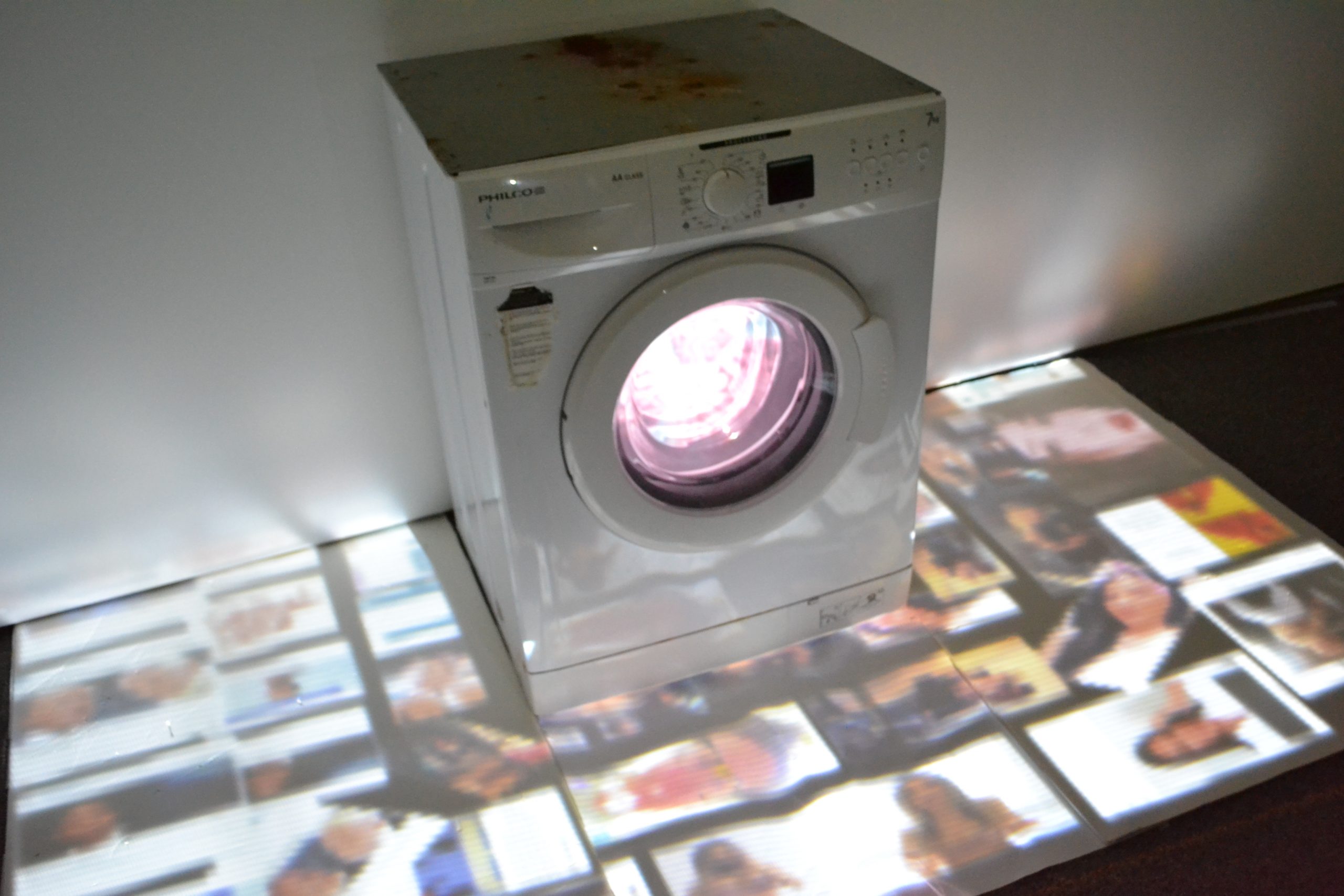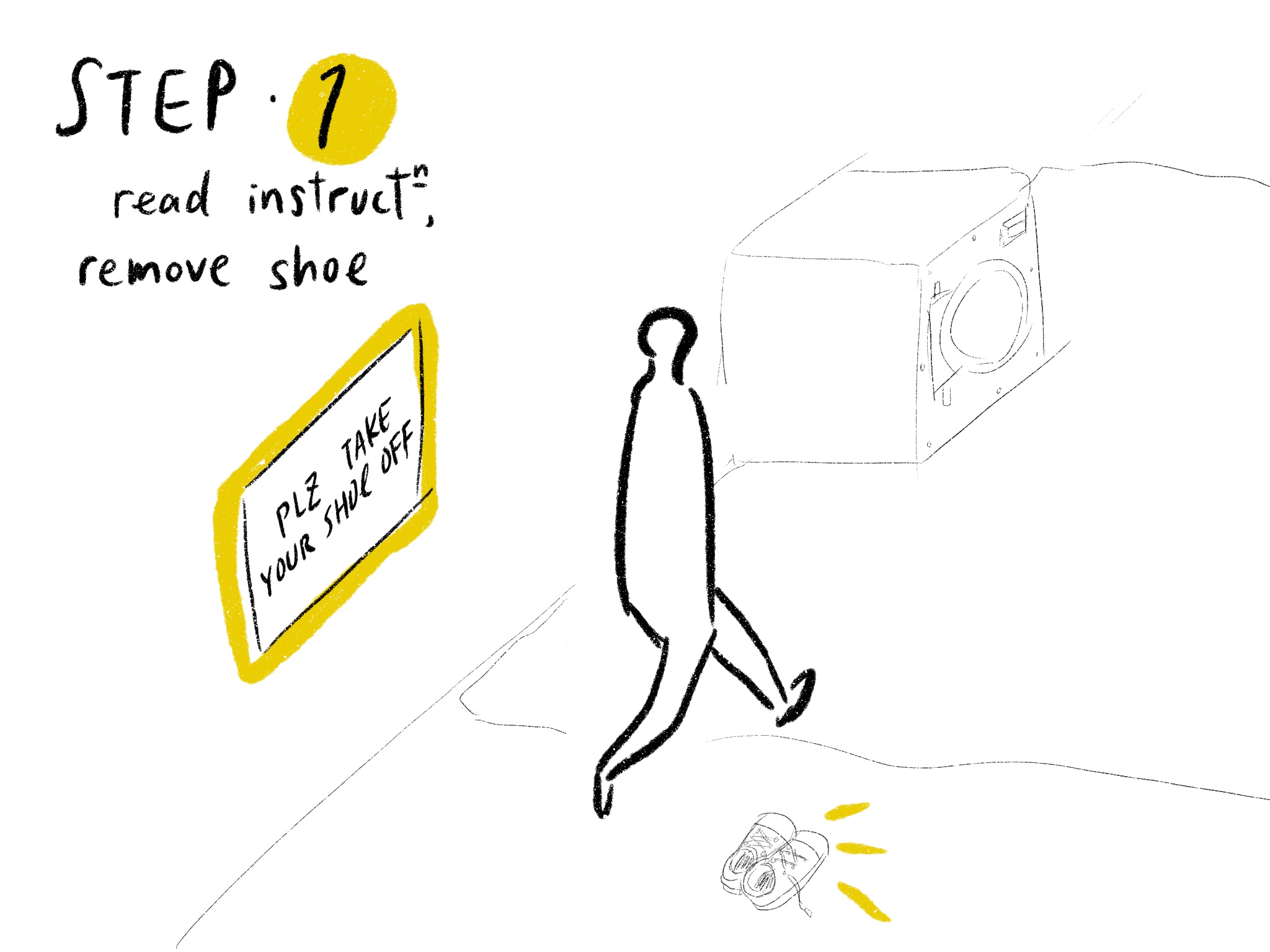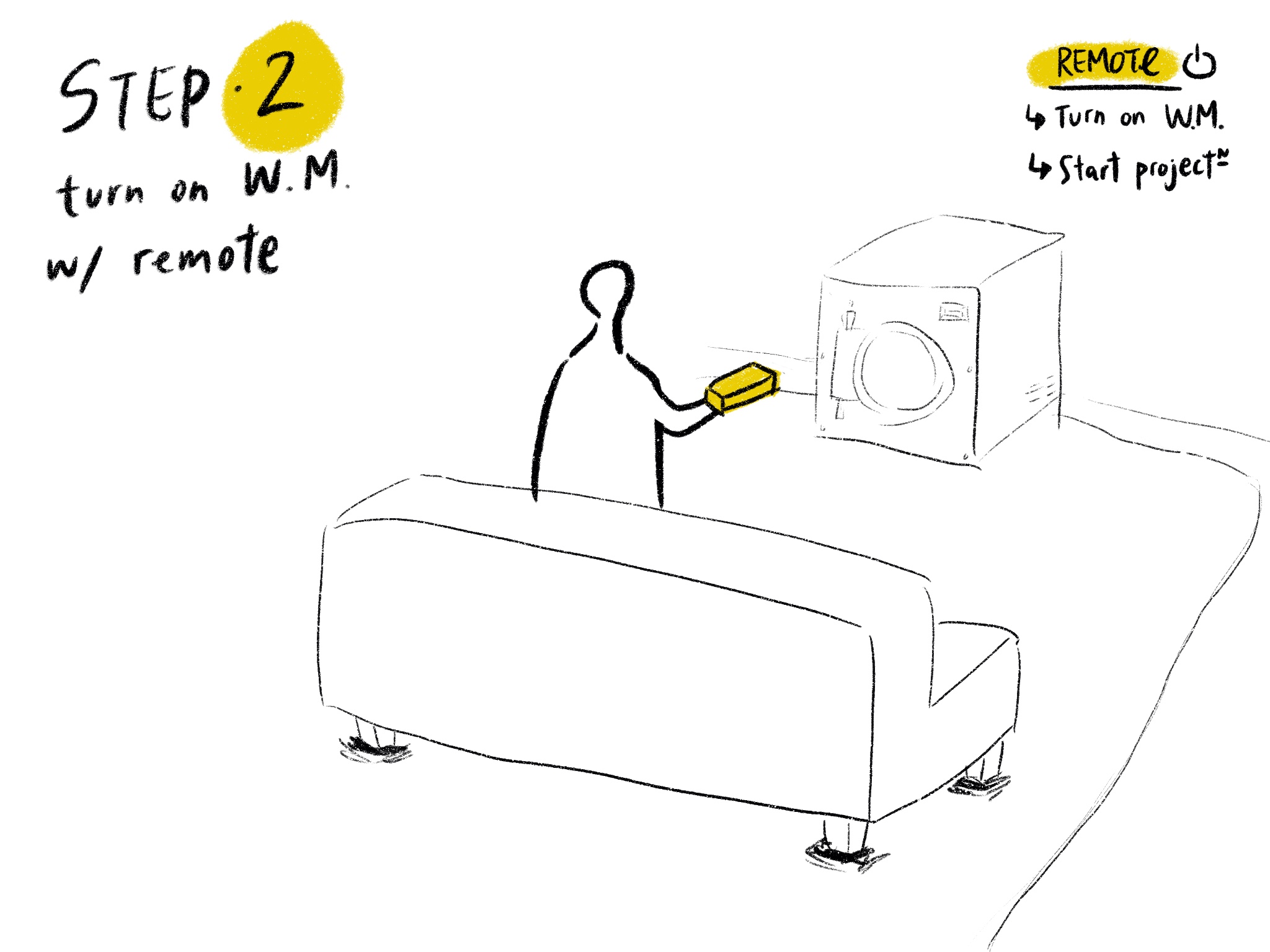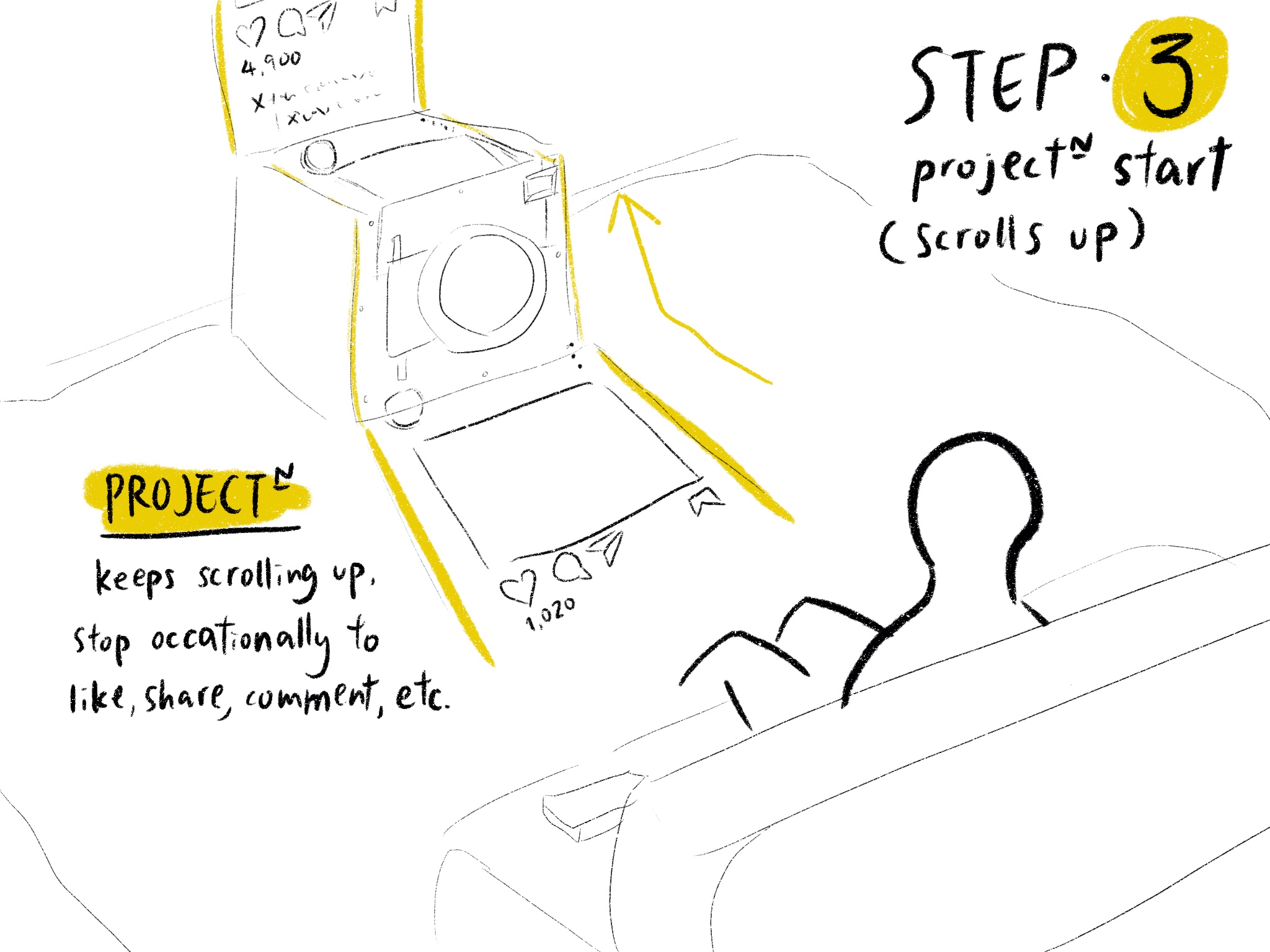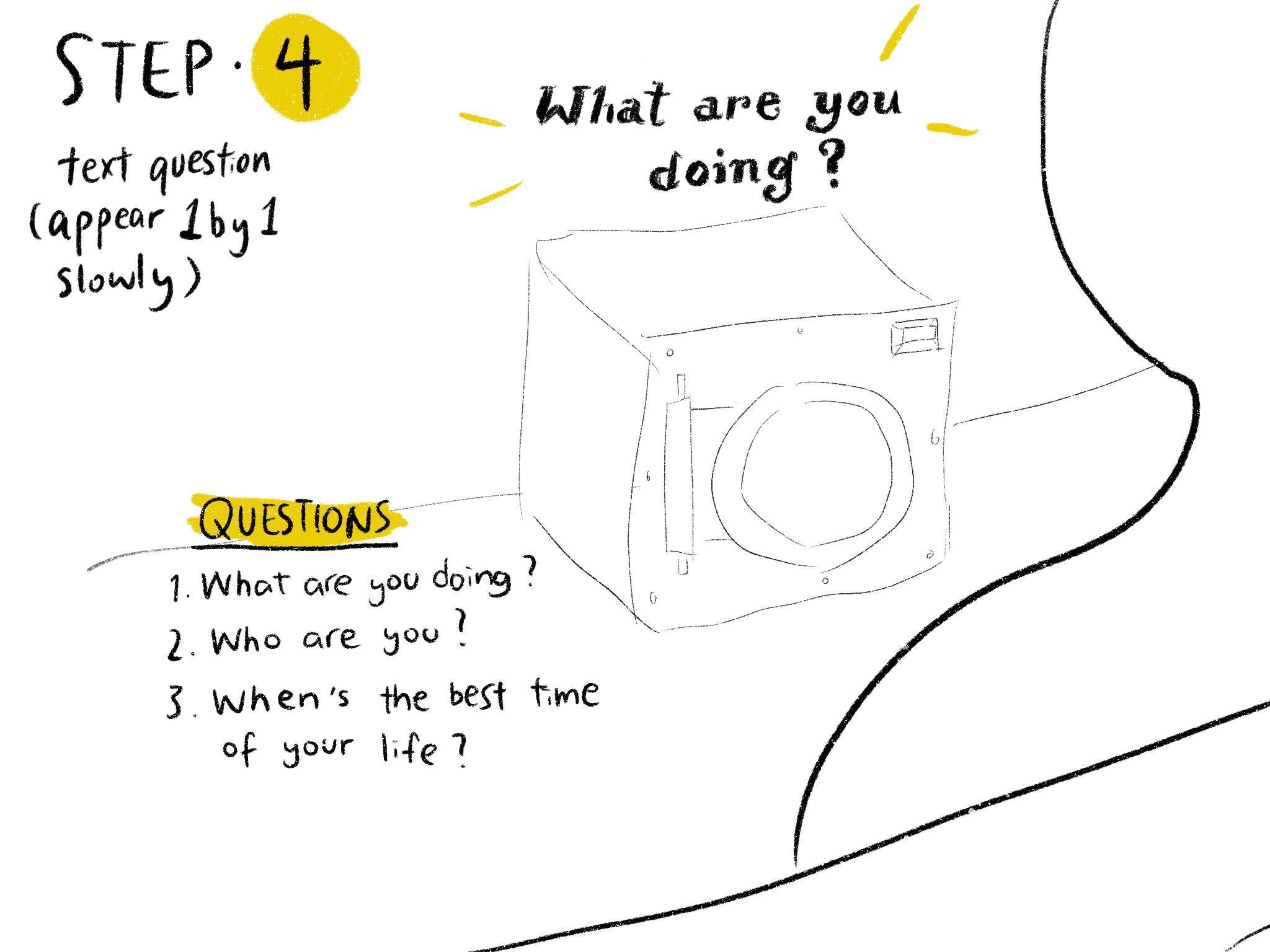Brain Laundry
Installation
LAW Yan Ching, Bethany 羅恩晴
2020 BAS New Media graduate
Abstract
Address the brain-washing effect of social media in society, and enhance individual’s consciousness of social media effects on human brains. Combining installation and projection mapping to create an environment for audience to observe
themselves in a third person view.
Description
Social media is like a huge washing machine, brain washing us into what they intend us to be, with it’s countless content fulfilling and manipulating our endless desire to connect, get validation with people.
To conduct these messages through an environment that gives audience a sense of safety and comfort (sofa and rug), a setting just like a typical living room, and by using projection mapping, animations and sound effects.
Replacing the usual television at the center of the living room, into a washing machine that does not wash clothes but brains instead, a straigth forward symbolic representation of brainwash. An animation of brains inside the washing machine with social media contents scrolling through on the machine surface.
This artwork was created in the eye of the generation when social media is created, the generation in which we could see the difference before having social media but also being at the midst of it. Reflecting our mixed feeling towards social media.
Artist Statement
An average person scrolls through 300 feet of mobile content a day, that’s the length of an American football field. Except some of us were no longer shocked by this fact, because scrolling our phones for more content and information is becoming a daily rou!ne.
We got lost and carried away, and forget what means the most to us. The basic idea of “Brain Laundry” is to put audiences in a 3rd person view to observe the effect of social media brainwashing having on us all. By recreating the scene where we aimlessly scroll through endless social media contents, and using symbolic graphics to represent the way we are brainwashed.
Replacing the usual television at the centre of the living room, into a washing machine that does not wash clothes but brains instead. A washing machine powered by social media contents, flowing through and consuming the brain. We were told that each of us is unique, one of a kind.
At the same time, corporations, celebrities, advertisers, and every individual with an account is a content provider, brainwashing each other with these ceaseless social media content, filling our thoughts with them. The question now is, what is ours and what is not? Is this thought still mine, or just a fragment of content I once scrolled through. Does this brain still owns the power to judge objectively, or is it turning into a product of the society’s mass informa!on input.
It’s an open question for us all. The effect is presence, beneficial or adverse, and to be fair, both. It sways our thoughts and judgement, they have an effect on us, the solution is not to avoid these mass content input on the whole, but to acknowledge and be reminded that our brains are influenced constantly by them.
